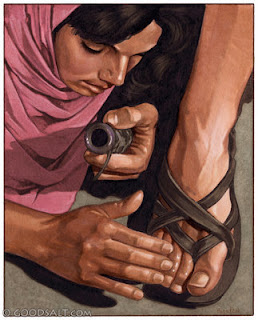I am certain that all of us are grieved by the uptick of mass shootings that are happening all over the country at the moment. This is of course not a new thing. We have seen this pattern of clusters of mass shootings in the past in this country.
According to the Gun Violence Archive there
have been 2,218 mass shootings since 2013 (in which at least four people are
being shot at the same time and location), (www.gunviolencearchive.org).
Almost every day in the cities of Philadelphia and
Wilmington there have been homicides and injuries in large numbers. I ponder
why that does not get more national news coverage. We should never take a single violent act for
granted; and as Christians we have some responsibility to address this
pandemic.
Automatic weapons make it so easy to gun down multiple
people in seconds. Contrast that with
the murder of Julius Caesar in 44 BC. During a meeting of the Senate in
Rome. It took the senators, led by Marcus
Brutus, quite a long time to kill him.
They stabbed him 23 times. If they had an automatic weapon, this would
have been quick work.
Jesus addressed murder in the “Sermon on the Mount.” In
just a few short words, he gets down to the heart of the matter. Violence and murder are products of human
anger.
“You have heard that it was said to those of old, ‘You
shall not murder; and whoever murders will be liable to judgment.’ But I say to you that everyone who is angry
with his brother will be liable to judgment. Whoever insults his brother will
be liable to the council, and whoever says, ‘You fool!’ will be liable to the
hell of fire.” (Matthew 5:21-22)
If this is the case, all
of us are guilty of murder when we harbor anger and speak evil against a
brother or sister. Mass murders of the
heart are happening every day, and it includes us good church people.
What do we do with this?
Surely, we are not as guilty as the gunmen that stormed the Fed-Ex
office, the massage parlor or the grocery store. Or are we?
Jesus also calls us to “be perfect as your Heavenly Father
is perfect.” (Matthew 5:48) It seems we
can be “going on to perfection” a lot more when it comes to handling our anger.
Christians, let us study Jesus’ methods of anger management, take them to heart and practice them in the world. It is quite alright to get angry about things. Jesus cleansed the temple (John 2: 13-16) when it was being desecrated. But no one was killed, the wrong was made right, and truth was embodied. Here are some other lessons from Jesus:
- Jesus engaged people in an anger-provoking situation. When he was slapped on the face during his mock trial, he turned to the perpetrator and said, “If I said something wrong, testify as to what is wrong. But if I spoke the truth, why did you strike me?” Talking through a situation can often defuse escalating violence and call people to accountability in a peaceful way. Proverbs 15:1 reminds us, “A gentle answer turns away wrath; but a harsh word stirs up anger.” When you are in a difficult conversation keep calm and speak the truth.
- Jesus points out a wrong but does not take it personally. When asked if he believed in paying taxes to Caesar, Jesus named the question’s intent: “Why put me to the test?” (Mark 12:15). He was clear about the hypocrisy and the mean-spirited attempt to trap him; but he answered their question with integrity. He did not let this get “under his skin.” I think that is what Paul means when he writes, “Do not let the sun go down while you are still angry.” (Ephesians 4:26). If we are wise, we need to have “Teflon” (stick-resistant) hearts and let the anger-provoking thing slide off of our hearts and psyche.
- Jesus forgave the unworthy, the not-sorry, and gave them the benefit of the doubt. When being nailed to a cross, Jesus said, “Father, forgive them, for they don’t know what they are doing.” (Luke 23:34). Forgiveness offered to those who anger us, hurt us, insult us and are not in any way sorry about it, is divine. Not only that, it is the key to peace in your heart that stems that internal rage. When you forgive, it doesn’t mean the person that hurt you is right. It just means that you are leaving it to God to handle. Paul reminded the Romans, “’Vengeance is mine, I will repay,’ says the Lord.” (Romans 12:19) When you forgive, you can be free of the internal rage.
Let us vow to stop committing “mass murder” in our hearts. Live in peace with all people (the easy to love and the not-so-easy to love). Teach non-violence and practice civility.
As we prepare for sessions of Annual Conference, may we engage each other with gentleness and respect. Using Bible verses in the “chat” as weapons to vent anger does not accomplish the work of God.
Justice causes are an important part of our holiness as Methodists, but rage and hurtful rhetoric are not. The cause of justice, so well exemplified in the life of Dr. Martin Luther King, Jr., is always accomplished best through non-violence, love and grace. God’s Spirit can give us the strength to handle our anger and avert much violence and murder.























